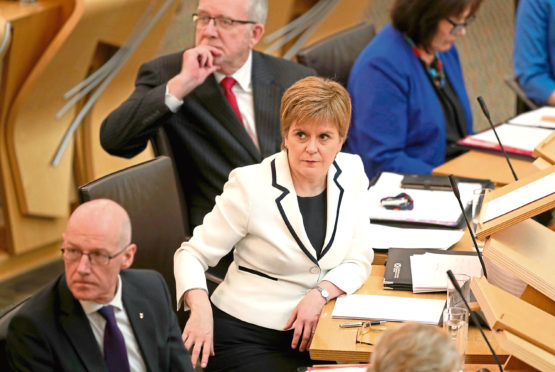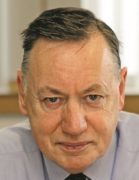AS a former Scottish Government special adviser, initially to First Minister Alex Salmond, then to his successor Nicola Sturgeon, I’ve been careful not to comment on government or SNP business in the three years since I left office.
I know only too well from personal experience how annoying it can be to ministers and current advisers when former colleagues pronounce on matters about which they no longer have any detailed knowledge.
However as a long-time member of the SNP and as a supporter of Scottish independence, and speaking purely in a personal basis, I feel I still have a right to comment on the future of our country and the prospect – or otherwise – of a second independence referendum.
Last month, Nicola Sturgeon published the Scottish Government’s draft legislation which, she says, will pave the way for a new referendum on Scottish independence. This legislation, she pointed out, will set the rules for any referendum held in Scotland: who gets to vote, how the campaigns will be regulated, and so on.
So far so good. However, the first minister then went on to say that this referendum would be held before the end of the current Scottish parliamentary session, which lasts until 2021, and that her own preference would be for a vote in the latter half of next year, 2020. She claimed that throughout the Brexit process, Scotland had been treated with contempt by Westminster, adding that the Scottish Government’s efforts to find compromise and protect the interests of Scotland had been ignored. She said Scotland now faced a choice between two very different futures: being dragged out of Europe against our will or becoming an independent country.
I do not disagree with any of the first minister’s analysis of how Scotland has been treated during the Brexit negotiations. However, I have to say that the likelihood of a vote in 2020 or even within the lifetime of the current Scottish Parliament session – much as I would like to see either of them – is very remote indeed. This is because such electoral matters are not in the gift of the Scottish Parliament – they’re reserved to Westminster.
We’re currently in the midst of a Conservative leadership election with the winner automatically becoming prime minister. One by one, the candidates have stated categorically, some more vehemently than others, that they would oppose granting permission to the Scottish Parliament to hold another independence referendum. And that, frankly, is that.
Of course, the Scottish Government could go ahead with its plans. With the support of the Greens, the SNP could win a vote at Holyrood to hold a referendum. But it would not have any legislative competence and would only be considered “indicative”, with no weight in international law. And, naturally, the Unionist opposition parties would encourage their own supporters to boycott the vote, resulting in any majority for independence being meaningless. That’s what happened less than two years ago in Catalonia, and the Spanish government were able to ignore that vote with no ramifications at all from the international community.
So what is the most likely scenario for another binding independence referendum to be held? The SNP could go into the 2021 Holyrood election with plans for another referendum the main plank of its manifesto. Then, if they won a majority, they’d have a clear mandate from the electorate to hold the vote and it would be far more difficult, though not impossible, for Westminster to continue to refuse the Scottish Parliament the powers to do so.
That’s the likeliest way that Scotland could see Indyref2 become a reality. There is though one more avenue, and it’s all down to what happens in the next few months at Westminster. A new Conservative leader might feel the necessity to cement his or her own position by holding a general election. Under the Fixed-term Parliaments Act 2011, this requires a two-thirds majority in the House of Commons. But that would not be a problem if it was being proposed by the Conservatives, as an election would be welcomed and supported by all the Opposition parties. That would give the SNP the opportunity to put Indyref2 at the top of a general election manifesto, instead of having to wait for the 2021 Scottish election.
I don’t doubt that in either scenario – thanks to the current disarray over Brexit within the Conservative Party and the in-fighting and implosion of Labour – that the SNP would sweep to victory, handing them the very mandate they require. Neither do I doubt that this time around, the referendum outcome would be different, with a majority vote for independence. At last month’s European elections, the SNP and the Greens polled 47 per cent between them, even with the high-profile intervention of the Brexit Party. Yet in last month’s vote neither 16 and 17-year-olds, nor foreign nationals – both groups overwhelmingly pro-independence – were allowed to take part.
I firmly believe that Indyref2 will be along shortly and that this time the Yes side will win. However, it is unlikely to be on the timetable currently being laid out by the Scottish Government.
Campbell Gunn is a retired political editor who served as special adviser to two First Ministers of Scotland











